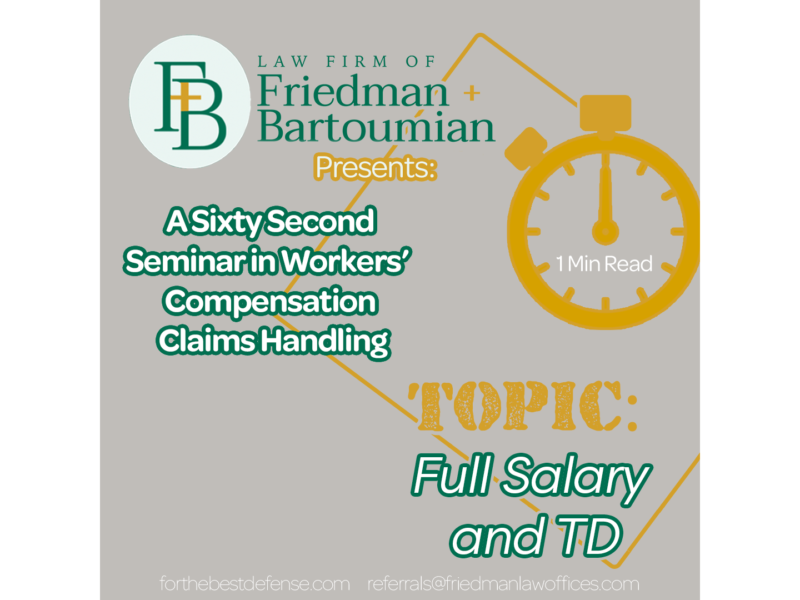Today’s blog asks a simple question: when should an injured worker opt for temporary disability benefits under California’s workers’ compensation act in lieu of salary replacement? The worker’s answer will likely depend on their personal financial situation and the variety of factors we list below. It may surprise you to learn that in some instances it is to the benefit of the injured workers to choose TD benefits over salary replacement! Let’s explore this phenomenon.
When a worker receives full salary, many deductions are applied that reduce the employee’s gross pay. Here are the common deductions faced by a California worker:
Federal Income Tax
Social Security (FICA)
State Disability Insurance (SDI)
Dental Insurance
Long Term Disability Insurance
401(k) Plan Deductions
Union Dues
Christmas Club
State Income Tax
Medicare Contributions
Health Insurance
Life Insurance
Short Term Disability Insurance
Cafeteria Med Plan Deductions
Authorized Charitable Deductions
Purchase of Extra Vacation
California law also allows wages to be garnished to satisfy tax liabilities, unpaid judgments, child support, and spousal support.
Faced with the above, it might be to the advantage of an injured worker to opt for regular TD benefits at 2/3 their average weekly wage rather than full salary, as TD cannot be reduced by any of the above deductions or garnishments, except for child support. Thus, the net take home pay when receiving TD may be far greater than full salary!
To reiterate, an employee is allowed to reject full salary and opt for TD benefits while on industrial disability.
As an additional wrinkle, bizarre situations sometimes occur at the appeals board when an injured worker seeks the simultaneous payment of their full salary and TD while on disability. Yes, they want both, with some applicants being successful! The explanation is rather simple. Full salary can only be credited against workers’ compensation benefits if paid in lieu of temporary disability! Recently a work comp judge found a disabled worker on full salary to be simultaneously eligible for TD benefits because his wages from the employer were being paid under a severance package and not in lieu of TD.
In conclusion, we wish to advise our readers of four important facts:
- An injured worker has the right to refuse full salary and opt for TD benefits.
- If full salary is paid in lieu of TD, appropriate benefit notices are still required.
- Late payment of full salary issued in lieu of TD can be penalized at a rate of 10% of the amount delayed (providing that a DWC-1 Claim Form has been filed).
- If the TD rate is greater than full wages, then TD is to be paid. This scenario usually occurs when the worker is a low earner.



 Employer Civil Liability: A Sixty-Second Seminar in Workers’ Compensation Claims Handling
Employer Civil Liability: A Sixty-Second Seminar in Workers’ Compensation Claims Handling
Leave a Reply